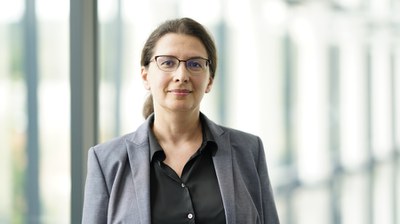News
September 13The candidates for best paper have been announced.September 9The conference proceedings are now available.August 6The conference program is now online.July 15The preliminary schedule of sessions for the conference has been posted.July 5Information on our two keynote presentations has been posted.June 11The list of accepted short papers, posters, and journal/book presentations has been posted.May 14The list of accepted full papers has been posted.May 1This year's Thematic Sessions details have been posted.May 1The submission deadline for the Doctoral Student Mentorship Program has been extended to June 14 to better align with short paper notifications.April 1Registration is now open. Early bird deadline is July 15.
Call for Papers
Submissions are now closed.
We are pleased to announce that the Conference on Spatial Information Theory (COSIT) will be held in Canada for the first time, the 16th in this international conference series! Established in 1993, COSIT is concerned with theoretical aspects of space and spatial information, aimed at advancing spatial information science and its emerging research frontiers.
Spatial information theory is the interdisciplinary study of information about spaces and environments at the scale of human experience, including its representation and its role in communication. In particular, spatial information theory studies how the interpretation of spatial information influences the behavior of human and artificial agents. It draws together numerous threads between computational and formal models of space; the mental representation of space by humans and other animals; and the various ways human and artificial agents communicate information about space. Space is thereby studied on various scales, including the space in geographic maps as well as the space of the human body.
COSIT is an open community that encourages the adoption of interdisciplinary and multidisciplinary methodologies and theories to advance knowledge of space and spatial information. For the thirty years that COSIT has been around, participants have explored spatial information theory from a multitude of perspectives, showcasing original and impactful research in spatial language and linguistics, spatial cognition, neuroscience, spatial reasoning, navigation, movement analysis, geographic information systems, spatial data science, semantics, philosophy of space, geostatistics, cartography, environmental modeling and design, place and space, artificial intelligence, robotics, location-based systems, and human-computer interaction, just to name a few! In order to maximize engagement and dissemination of ideas at the conference, COSIT runs as an intensive, single-track conference consisting of paper presentations and special thematic sessions over four days.
Our use of spatial technologies in everyday life has changed dramatically since the first COSIT. Today, geospatial technologies are ubiquitous, we are drowning in spatial data, and recently AI tools that compute over language stand to significantly change how information systems communicate spatial information all while being generally opaque about what spatial knowledge they represent. At the same time the spatial environments that are represented in information systems reflect a reality of a world facing a series of complex and challenging social and environmental issues spanning from urban planning to climate change. It is with this context that we have chosen the theme for this year’s COSIT: spatial information theory for transparent translational research. In addition to original research papers on spatial information theory from any discipline, we especially welcome papers that make the link between spatial information theory and benefits to humanity, the biosphere, and the planet.
Themes
We welcome contributions covering conference-relevant themes, such as but not limited to:
- activity-based models of spatial knowledge
- cartography and geographic visualization
- causal and statistical models of space
- cognitive aspects of geographic information
- cognitive-behavioral geography, naive geography
- concepts of spatial information, such as fields, objects, events, networks, and processes
- context awareness in physical and social spaces
- explainable geospatial artificial intelligence (geoAI) and spatially informed AI
- geographic question-answering (geoQA)
- knowledge representation for space and time
- natural (human) language descriptions of space and place
- navigation, wayfinding, and mobility of sentient beings and robots
- ontology of space and time
- place and spatial information theory
- quality and interoperability of spatial data
- security and privacy for spatial data
- semantic spaces
- social and cultural organization of space
- spatial and temporal language
- spatial aspects of social networks, volunteered geographic information
- spatial cognition and neuroscience
- spatial computing and design
- spatial decision support, impact of model design
- spatial (digital) humanities
- spatial information retrieval and encoding of geographic texts
- spatial learning and knowledge acquisition
- spatial storytelling and interactive narratives
- theory and practice of spatial and temporal reasoning
- user interfaces, virtual spaces, and collaborative spaces
- validity of spatial information methods
Submissions
Full papers
Full research papers of 12-20 pages will be reviewed by at least three members of the program committee. High-quality submissions will be accepted for presentation at the conference, and will be published in the conference proceedings. Selection will be based on relevance to the conference themes, scientific significance, novelty, relation to previously published literature, clarity of presentation, and interdisciplinary considerations. Manuscripts must describe original work that has not been submitted and published elsewhere. Submissions must use the LIPIcs LaTeX template. Please follow the guidelines presented in the Proceedings/Template section below.
The COSIT 2024 review process is double-blind. The submitted document should omit any author names, affiliations, or other identifying information. This may include, but is not restricted to acknowledgments, self-citations, and references to prior work by the author(s). Please use the third-person to identify your own prior work. You may explicitly refer to organizations that provided datasets, hosted experiments, or deployed solutions and tools.
Full paper submission is now closed
Short papers
Short papers of 7 pages (max) present late-breaking and in-progress research, with less emphasis on mature results. All submissions will be reviewed by members of the program committee. Accepted submissions will be selected for either oral or poster presentation at the conference. Authors of short papers accepted for oral presentation will have the option of having their papers included in the conference proceedings. All other accepted short papers will be shared in a non-archival digital repository. Submissions must use the LIPIcs LaTeX template. Please follow the guidelines presented in the Proceedings/Template section below.
The COSIT 2024 review process is double-blind. The submitted document should omit any author names, affiliations, or other identifying information. This may include, but is not restricted to acknowledgments, self-citations, and references to prior work by the author(s). Please use the third-person to identify your own prior work. You may explicitly refer to organizations that provided datasets, hosted experiments, or deployed solutions and tools.
Please note that each accepted short paper must be accompanied by a unique participant registration.
Short paper submission is now closed
Journal Article or Book Presentation
The conference will run a special thematic session dedicated to providing authors of recently published journal research articles or books on spatial information theory the opportunity to present and share their work in front of the COSIT audience. The article or book must have been published during the years 2022-2024. Submissions should include a citation and <1 page summary of the paper's or book's relevance to COSIT. It will be screened by the program chairs with selection based on relevance to the conference themes. Please submit material directly to cosit2024@gmail.com.
Proceedings / Template
We offer Open Access publications for the refereed submission tracks in the Leibniz International Proceedings in Informatics (LIPIcs) Series. LIPIcs provides a LaTeX template for papers: https://www.dagstuhl.de/en/publishing/series/details/lipics#author. Please make sure you use the latest version of the template on that page.
Authors unfamiliar with LaTeX, but keen to try, are highly encouraged to use Overleaf (http://www.overleaf.com), an online LaTeX editor that is easy to use and does not require any local installation. Overleaf comes with the LIPIcs template pre-loaded (https://www.overleaf.com/latex/templates/article-for-the-lipics-series/qmwncxspzfst), so you can immediately start typing. Overleaf is also a collaborative writing tool, allowing multiple authors to work on their paper concurrently.
Authors who want to use other text editors should stay close to the sample article’s layout for their paper submitted for review. Should their papers be accepted for publication, they have to be converted to LaTeX using the LIPIcs LaTeX class and template. Authors are responsible for the conversion of their papers to LaTeX.
More information on how to submit will be shared here soon. In order for an accepted paper to be published in the conference proceedings (full papers, short papers) or included in the conference program (non-archival short poster papers), at least one of the paper authors has to register by the author registration deadline (TBA).
Keynote Presentations
We are happy to welcome two cutting edge researchers as keynote speakers for this year's conference.
Impact of technology on spatial memory, the hippocampus
and implications for healthy cognition

Véronique Bohbot
Professor, McGill University & VeboSolutionsAbstract
Different memory systems, dependent on separate parts of the brain, can sustain successful navigation. The hippocampus is implicated in spatial memory strategies used when finding one’s way in the environment, i.e. it is allocentric and involves remembering the relationship between landmarks. On the other hand, another strategy dependent on the caudate nucleus can also be used, i.e. the response strategy, which relies on making a series of stimulus-response associations (e.g. right and left turns from given positions that act as stimuli, such as turn right at the white building). Adults who use spatial memory strategies showed increased fMRI activity in the hippocampus, increased grey matter in the hippocampus, and better overall cognition compared to adults who use response strategies. Decades of research in my laboratory has shown that specific navigation strategies are associated with several genes, such as BDNF and ApoE, as well as hormones, such as cortisol and progesterone. Experiences dependent modulators such as age, habit, stress and rewards also modulate strategies dependent on the hippocampus and caudate nucleus. Moreover, certain technologies such as Global Position Systems (GPS) or video games inhibit the use of the hippocampus and are associated to poor spatial memory. These results have important implications on mental health because a larger hippocampus has been associated with healthy cognition in normal aging and with a reduced risk of numerous neurological and psychiatric disorders such as Alzheimer’s disease, Schizophrenia, Post-Traumatic Stress disorder and Depression.
Biography
Dr. Véronique Bohbot received her PhD in cognitive neuroscience in 1997 at the University of Arizona under the supervision of Dr. Lynn Nadel, co-author of Nobel Laureate Dr. John O’Keefe. Dr. Bohbot is an internationally recognized expert in the field of spatial memory and navigation. She made over 150 scientific presentations on memory at national and international conferences and published over 80 scientific articles and one book. Her research has been featured in university textbooks, on television, radio and in more than 50,000 internet sites that report the potential effects of technology on the brain. She studied spatial memory in healthy individuals from 8 years old to 85 years of age. She also examined spatial memory in relation to various neurological and psychiatric disorders, such as mild cognitive impairment, Parkinson's disease, diabetes, attention deficit hyperactivity disorder and schizophrenia. Dr. Bohbot’s research uses methods with cutting edge technology such as virtual reality and neuroimaging in order to stimulate memory and the hippocampus, thereby reducing risks of neurological and psychiatric disorders. Currently, Dr. Bohbot holds a Full Professor position in the Department of Psychiatry at McGill University.
Towards knowledge-aware spatiotemporal
data analytics in AI systems

Elena Demidova
Professor, University of Bonn & Lamarr Institute for Machine Learning and Artificial IntelligenceAbstract
The objective of my research is to establish a comprehensive knowledge- and learning-based paradigm for spatiotemporal knowledge representation at the intersection of semantic and data-driven artificial intelligence. This involves AI algorithms with a deeper understanding of the spatiotemporal domain and next-generation AI models that significantly enhance prediction accuracy, interpretability, and user interaction. In this talk, I will discuss selected methods and algorithms developed by my research group towards this goal, including robust knowledge-aware predictive models for spatiotemporal data and knowledge graphs for semantic geospatial data management.
Biography
Prof. Dr. Elena Demidova is Professor of Computer Science and head of the Data Science and Intelligent Systems Group (DSIS) at the University of Bonn and Lamarr Institute for Machine Learning and Artificial Intelligence in Bonn, Germany. She received her Ph.D. degree from the Leibniz University of Hannover, Germany in 2013, and her M.Sc. degree in Information Engineering from the University of Osnabrück, Germany in 2006. Elena published over 100 research contributions, including publications in the leading venues in the areas of machine learning, data mining and semantic web, such as Machine Learning Journal, ACM SIGKDD, ACM CIKM, ACM SIGSPATIAL, TheWebConf and ISWC conferences and received several awards. Elena has been involved in leading roles in several large-scale European and national projects in the area of spatio-temporal data analytics. Elena’s main research interests are in Data Analytics, Spatio-Temporal data, Geo AI, Knowledge Graphs, Machine Learning, the Web, and Semantic Web
Accepted Papers
Full Papers |
Short Papers |
Posters |
Journal Articles / Book Chapters
Accepted Full Papers
The following full papers will appear in the COSIT 2024 conference proceedings and will be presented during the conference.
Full paper presentations are 15 minutes in length.
Understanding the cognitive processes involved in wayfinding is crucial for both theoretical advances and practical applications in navigation systems development. This study explores how gaze behavior and visual attention contribute to our understanding of cognitive states during wayfinding. Based on the model proposed by Downs and Stea, which segments wayfinding into four distinct stages: self-localization, route planning, monitoring, and goal recognition, we conducted an outdoor wayfinding experiment with 56 participants. Given the significant role of spatial familiarity in wayfinding behavior, each participant navigated six different routes in both familiar and unfamiliar environments, with their eye movements being recorded. We provide a detailed examination of participants' gaze behavior and the actual objects of focus. Our findings reveal distinct gaze behavior patterns and visual attention, differentiating wayfinding stages while emphasizing the impact of spatial familiarity. This examination of visual engagement during wayfinding explains adaptive cognitive processes, demonstrating how familiarity influences navigation strategies. The results enhance our theoretical understanding of wayfinding and offer practical insights for developing navigation aids capable of predicting different wayfinding stages.
Twenty years after Mark and Smith's seminal paper, a Science of Topography, we revisit some of their fundamental questions about how landforms are recognised by people and how they can be automatically extracted or delimited from representations of topographic surfaces. Many approaches and tools, essentially based on GeOBIA, can extract objects associated with landforms from image data. But, they cannot relate these objects to the topology and topography of the terrain. Yet, geo-scientists can easily recognise landforms, considering terrain characteristics and other factors composing the context of appearance of those landforms. Revisiting Gestalt Theory, we propose a salience-based approach fostering a holistic view of the terrain which fits with the geoscientists' ability to recognise landforms using the topographic and hydrologic contexts. The terrain is represented as an extended surface network (ESN), a graph composed of elementary saliences (peaks, pits, saddles, thalweg and ridge networks) and obtained from raster data. The ESN combines both the surface and the drainage networks in a sound topological representation of the terrain. A skeletonisation technique of the ESN's thalweg and ridge networks is proposed to geometrically and topologically characterise landforms, as well as ensembles of landforms. On this basis and to represent the context of appearance of landforms, geo/topo-contexts are introduced as structures grounded in the properties of the ESN and using the skeletonisation technique. We give an illustration of how a geomorphologist can apply our approach and tools, using the depressions and drainage basins as examples of useful geo/topo-contexts.
Sketch mapping is a research technique that has been widely used to study what people think about the spatial layout of an environment. One of the limitations of the current practice of sketch mapping is that the interface (a pen on paper or digital tablet) forces people to draw on 2D surfaces even when the information to be represented is 3D. For the purpose of studying the 3D aspect of spatial understanding, the recent advancements of extended reality (XR) technologies including virtual and augmented reality are interesting as they provide novel ways to create 3D sketches. In this paper, we investigate how the concept of 3D sketch mapping using XR is perceived by users and explore its potential feasibility and use cases. For this, we conducted semi-structured interviews with 27 participants from three domains: aviation, architecture, and wayfinding. Our findings show that the concept is well-perceived as an intuitive way to externalize the 3D aspect of spatial information, and it has the potential to be a research tool for human cognition research as well as a practical tool that can provide added value in different professional activities.
We propose a theoretical framework for qualitative spatial representation and reasoning about curves on a two-dimensional plane. We regard a curve as a sequence of segments, each of which has its own direction and convexity, and give a symbolic expression to it. We then propose a reasoning method on this symbolic expression; when only a few segments of a curve are visible, we find missing segments by connecting them to create a global smooth continuous curve. In addition, we discuss whether the shape of the curve thus obtained can represent that of a real object; if the curve forms a spiral, such a curve is sometimes not optimal as a border of an object. We show a method that judges the appropriateness of a curve, by considering the orientations of the segments.
Extracting spatial details from historical texts can be difficult, hindering our understanding of past landscapes. The study addresses this challenge by analyzing the Corpus of the Lake District Writing, focusing on the English Lake District region. We systematically link the theoretical notions from the core concepts of spatial information to provide basis for the problem domain. The conceptual foundation is further complemented with a spatial ontology and a custom gazetteer, allowing a formal and insightful semantic exploration of the massive unstructured corpus. The other contrasting side of the framework is the usage of LLMs for spatial relation extraction. We formulate prompts leveraging understanding of the LLMs of the intended task, curate a list of spatial relations representing the most recurring proximity or vicinity relations terms and extract semantic triples for the top five place names appearing in the corpus. We compare the extraction capabilities of three benchmark LLMs for a scholarly significant historical archive, representing their potential in a challenging and interdisciplinary research problem. Finally, the network comprising the semantic triples is enhanced by incorporating a gazetteer-based classification of the objects involved thus improving their spatial profiling.
This paper presents the Spatial Nudging framework --- a theory-based framework that maps out nudging strategies in the mobility domain and refines its existing definitions. We link these strategies by highlighting the role of perceived affordances across physical and digital interventions based on the Nudge Theory and the Theory of Affordances. Furthermore, we propose to use graph representation techniques as a supportive methodology to better align perceived and actual environments, thereby enhancing the intervention strategies' effectiveness. We illustrate the applicability of the Spatial Nudging framework and the supportive methodology in the context of 'blinded for review'. This paper lays the foundation for future research on effectively synchronizing physical and digital interventions to promote sustainable mobility.
Intuitively, there is a relation between measures of spatial dependence and information theoretical measures of entropy. For instance, we can provide an intuition of why spatial data is special by stating that, on average, spatial data samples contain less than expected information. Similarly, spatial data, e.g., remotely sensed imagery, that is easy to compress is also likely to show significant spatial autocorrelation. Formulating our (highly specific) core concepts of spatial information theory in the widely used language of information theory opens new perspectives on their differences and similarities and also fosters cross-disciplinary collaboration, e.g., with the broader AI/ML communities. Interestingly, however, this intuitive relation is challenging to formalize and generalize, leading prior work to rely mostly on experimental results, e.g., for describing landscape patterns. In this work, we will explore the information theoretical roots of spatial autocorrelation, more specifically Moran's I, through the lens of self-information (also known as surprisal) and provide both formal proofs and experiments.
Despite the frequent use of sketch maps in assessing environmental knowledge, it remains unclear how and to what degree familiarity impacts sketch map content. In the present study, we explore whether different levels of familiarity relate to differences in the content and spatial accuracy of environmental knowledge depicted in sketch maps. To this end, we conduct a real-world wayfinding study with 91 participants, all of whom have to walk along a pre-defined route of approx. 2.3km length. Prior to the walk, we collect self-report familiarity ratings from participants for both a set of 15 landmarks and a set of areas we define as hexagons along the route. Once participants finished walking the route, they were asked to sketch a map of the route, specifically a sketch that would enable a person who had never walked the route to follow it. We found that participants unfamiliar with the areas along the route sketched fewer features than familiar people did. Contrary to our expectations, however, we found that landmarks were sketched or not regardless of participants’ level of familiarity with the landmarks. We were also surprised that the level of familiarity was not correlated to the accuracy of the sketched order of features along the route, of the position of sketched features in relation to the route, nor to the metric locational accuracy of feature placement on the sketches. These results lead us to conclude that different aspects of feature salience influence3 whether the features are included on sketch maps, independent of familiarity. They also point to the influence of task context on the content of sketch maps, again independent of familiarity. We propose a research program to more fully explore these ideas.
Isolines visually characterize scalar fields by connecting all points of the same value by a closed curve at repeated intervals. They only work as a set which gives the user an indication of the shape of the underlying field. Hence, when simplifying isolines it is important that the correspondence -- the harmony -- between adjacent isolines is preserved whenever it is present. The majority of state-of-the-art simplification methods treat isolines independently; at best they avoid collisions between adjacent simplified isolines. A notable exception is the work by Van Goethem et al. (2021) who were the first to introduce the concept of harmony between adjacent isolines explicitly as an algorithmic design principle. They presented a proof-of-concept algorithm which harmoniously simplifies a sequence of polylines. However, the sets of isolines of scalar fields, most notably terrain, consist of closed curves which are nested in arbitrarily complex ways and not of an ordered sequence of polylines.
In this paper we significantly extend the work by Van Goethem et al. (2021) to capture harmony in general sets of isolines. Our new simplification algorithm can handle sets of isolines describing arbitrary scalar fields and is more efficient, allowing us to harmoniously simplify terrain with hundreds of thousands of vertices. We experimentally compare our method to the results of Van Goethem et al. (2021) on bundles of isolines and to general simplification methods on isolines extracted from DEMs of Antartica. Our results indicate that our method efficiently preserves the harmony in the simplified maps which are hence less noisy, cartographically more meaningful, and easier to read.
Sustainable transport is becoming an increasingly pressing issue, with two major pillars being the reduction of car usage and the promotion of public transport. One way to approach this topic is through the large number of daily commute trips in urban areas, and their modal split. Previous research gathered knowledge on influencing factors on the modal split mainly through travel surveys. We take a different approach by analysing the “raw” network and the time-optimised trips on a multi-modal graph. For the case study in Gotham City, we investigate how the option to use a private car influences the modal split of routes towards the city centre. Additionally, we compare the modal split across seven inner districts and we relate properties of the public transport network to the respective share of public transport. The results suggest that different districts have varying options of public transport connections towards the city centre, with a share of public transport between about 5% up to a share of 45%. In some cases, the share of car is much higher than the share of public transport with more than 87% car usage. This indicates that investment should be made in public transport in those areas. Regarding network properties, our findings suggest, that it is not sufficient to analyse the public transport network as a whole. Instead, individual public transport modalities should be examined. We show, that the network length and the direction of the lines towards the city centre have an influence on the proportion of subway and tram in the modal split.
The concept of validity is a cornerstone of science. Given this central role, it is somewhat surprising to find that validity remains a rather obscure concept, or is reduced to a matter of ground truth data. In this paper, instead, we take a purpose-based approach to the validity of spatio-temporal models. We argue that a model application is valid only if the model delivers a valid answer to a particular kind of spatio-temporal question which represents its information purpose. Based on a pragmatic action-based theory of geographic knowledge, we argue that such questions are about experiments including spatio-temporal controls and measures. The latter constitute the information purposes of models, forming an intermediate layer in a pragmatic knowledge pyramid with corresponding levels of validity. We introduce a corresponding question-based grammar that allows us to formally distinguish among contemporary inference, prediction, retrodiction, projection, and retrojection. We apply the grammar to corresponding modeling examples, and discuss the possibilities for validating such models as a means to a given end.
Accepted Short Papers
The following short papers will appear in the COSIT 2024 conference proceedings and will be presented during the conference.
Short paper presentations are 8 minutes in length.
-
Exploring Discrete Spatial Heterogeneity across Quantiles: A Combination Approach of Generalized Lasso and Conditional Quantile Regression
( Ryo Inoue, Kenya Aoki ) -
Long-term landmark and route memory retention acquired in a real-world map-aided navigation task
( Armand Kapaj, Christopher Hilton, Sara Fabrikant ) -
How do people parse dynamic maps? Insights from event segmentation experiments
( Reena Pauly, Stephan Schwan ) -
Exploring the Relation Between Sense of Direction and Spatial Anxiety in Everyday Mobile Map App Use
( Donatella Zingaro, Tumasch Reichenbacher, Mona Bartling, Sara Fabrikant ) -
Four Arguments Why Places and Information About Places Are Linked
( Franz-Benjamin Mocnik ) -
A Logic of East and West for Intervals
( Zekai Li, Amin Farjudian, Heshan Du ) -
Inferring the origin of linguistic features from an atlas: a case study of Swiss-German dialects
( Takuya Takahashi, Elvira Glaser, Peter Ranacher ) -
The Senators Problem: A Design Space of Node Placement Methods for Geospatial Network Visualization
( Arnav Mardia, Sichen Jin, Kathleen M. Carley, Yu-Ru Lin, Zachary Neal, Patrick Park, Clio Andris ) -
The Role of Gaze and the Semantics of Demonstratives in Referent Selection
( Crystal H. Y. Chen, Lyn Tieu, Ana T. Perez-Leroux ) -
An ontology and geospatial knowledge graph for reasoning about cascading failures
( Torsten Hahmann, David K. Kedrowski ) -
Navigation challenges in urban areas for persons with mobility restrictions
( Hoda Allahbakhshi, Annina Ardüser ) -
Towards Formalizing Concept Drift and Its Variants: A Case Study Using Past COSIT Proceedings
( Meilin Shi, Krzysztof Janowicz, Zilong Liu, Kitty Currier ) -
Towards a general framework for co-location
( Keiran Suchak, Ed Manley ) -
Towards Statistically Significant Taxonomy Aware Co-location Pattern Detection
( Subhankar Ghosh, Arun Sharma ) -
Comparisons of Chicago Neighborhood Boundaries from Crowdsourced Resident Drawings
( Crystal Bae, Lydia Wileden, Emily Talen ) -
Formalizing a Unique Space-Time Grammatical Mapping in a North American Indigenous Language Family
( Zahur Ashrafuzzaman ) -
Evaluating the Ability of Large Language Models to Reason about Cardinal Directions
( Anthony Cohn, Robert E Blackwell ) -
Assessing perceived route difficulty in environments with different complexity
( Arvid Horned, Zoe Falomir, Kai-Florian Richter ) -
Wheelchair users navigational behavior: insights from eye movement data and environment legibility
( Sanaz Azimi, Mir Abolfazl Mostafavi, Angélique Lydia Montuwy, Krista Lynn Best, Aurélie Dommes ) -
Large Language Models: Testing their capabilities to understand and explain spatial concepts
( Majid Hojati, Rob Feick )
Accepted Posters
The following short paper submissions will be presented as posters during the conference. The short papers will not appear in the official COSIT 2024 conference proceedings but authors may optionally including their papers in a COSIT Zenodo volume.
-
From map-supported route planning to map-assisted navigation: a VR-based study to assess context-aware mobile map adaptation
( Mona Bartling, Zhengfang Xu, Sara Fabrikant ) -
How exposure assessments are impacted by definitions of environmental contexts
( Csilla Vamos, Simon Scheider, Tian Tian, Roel Vermeulen ) -
Translational Research: Leveraging Spatial Behavior and Longitudinal Activity Space Data for Advancing Mobile Health (mHealth) Interventions
( Jeremy Mennis, J. Douglas Coatsworth, Michael Russell, Nikola Zaharakis, Nathaniel R. Riggs, Aaron Brown, Michael J. Mason ) -
Evaluating the Effectiveness of AI Foundation Models in Representing and Understanding Movement Trajectories
( Yuhan Ji, Song Gao ) -
A graph-based conflation framework for building footprints
( Jack Joseph Gonzales, Taylor Hauser, Robert Stewart ) -
Towards Spatio Temporal Graph Representations for Historical Spatial Data
( Anne-Pauline Couteaud, Géraldine DEL Mondo, Benoit Gauzere, Florent Hautefeuille, Clement Chatelain ) -
Modelling surface and underground streams in drainage network computation
( Yassmine Zada, Eric Guilbert, Sylvain Jutras ) -
Learning-based Clustering Method for Semantic Place Retrieval
( Jiamin Lu, Jiahao Liu, Zhendong Fan, Zhenyu Zhou, Xu Kong, Jun Feng ) -
How do Humans and Computers Perform Differently in Site Selection? Insights from an Ambulance Station Placement Game
( Lars De Sloover, Bart De Wit, Haosheng Huang, Nico Van de Weghe ) -
Teaching about spatial navigation: some (inter)disciplinary insights
( Angélique Lydia Montuwy ) -
Predictive cognitive mapping of geographic spaces
( Ed Manley, Daniel C McNamee ) -
Quo vadis Map-based Search?
( Krzysztof Janowicz, Meilin Shi, Zilong Liu, Noemi Beluli, Glenys Laetitia Bischoff, Laura Marlene Huber, Paul Huber, Moritz Imrecke, Manuel Kastner, Dominik Knabe, Franziska König, Rainhard Neuhauser, Niklas Neustätter, Selina Stephanie Straßburger, Stefan Karl Thurnhofer, Florian Mathias Venier, Laura Welz ) -
Comparing the acquisition of spatial knowledge through augmented reality landmarks on windshield: Online vs. Virtual Reality
( Muxu Wang, Rui Li, Jiayan Zhao ) -
Uncovering Regional Defaults from Photorealistic Forests in Text-to-Image Generation with DALL·E 2
( Zilong Liu, Krzysztof Janowicz, Kitty Currier, Meilin Shi ) -
An Investigation of Strategy Use on The Block Design Task
( Danielle Rothschild, Kiley McKee, Mackenzie Drummond, David Uttal ) -
Achieving Improved Geospatial Data Integrity Through Spatio-Semantic Conflation of Disparate Sources of Volunteered Geographic Data
( Joseph Bentley, Kelly Sims, Gautam Malviya Thakur )
Accepted Journal Article, or Book Presentations
The following previously published journal articles, book chapters, or books will be presented at during the conference.
These presentations are 8 minutes in length.
-
Curtin, Kevin and Daniel R. Montello (Eds.). (2023). Collective Spatial Cognition: A Research Agenda (1st ed.). Routledge. (2023)
Book -
Filomena, Gabriele, Lia Kirsch, Angela Schwering, and Judith A. Verstegen. "Empirical characterisation of agents’ spatial behaviour in pedestrian movement simulation." Journal of Environmental Psychology 82 (2022): 101807.
Journal Article -
Hu, Yingjie, Gengchen Mai, Chris Cundy, Kristy Choi, Ni Lao, Wei Liu, Gaurish Lakhanpal, Ryan Zhenqi Zhou, and Kenneth Joseph. "Geo-knowledge-guided GPT models improve the extraction of location descriptions from disaster-related social media messages." International Journal of Geographical Information Science 37, no. 11 (2023): 2289-2318.
Journal Article -
Kapaj, Armand, Christopher Hilton, Sara Lanini-Maggi, and Sara I. Fabrikant. "The influence of landmark visualization style on task performance, visual attention, and spatial learning in a real-world navigation task." Spatial Cognition & Computation (2024): 1-41.
Journal Article -
Wei, Lijun, Valérie Gouet-Brunet, and Anthony G. Cohn. "Location retrieval using qualitative place signatures of visible landmarks." International Journal of Geographical Information Science (2024): 1-45.
Journal Article -
Gao, Song, Yingjie Hu and Wenwen Li (Eds.). Handbook of Geospatial Artificial Intelligence (1st ed.). CRC Press. (2023)
Book
Candidates for Best Paper, Short Paper, and Poster
The following papers have been selected as candidates based on review from the program committee.
Winners will be determined by an awards committee and announced on the last day of the conference.
-
Best Paper
-
Spatial Nudging: Converging Persuasive Technologies, Spatial Design, and Behavioral Theories
Ayda Grisiute, Martin Raubal -
Revealing differences in public transport share through district-wise comparison and relating them to network properties
Manuela Canestrini, Ioanna Gogousou, Dimitrios Michail, Ioannis Giannopoulos - WINNER:
Probing the Information Theoretical Roots of Spatial Dependence Measures
Zhangyu Wang, Krzysztof Janowicz, Gengchen Mai, Ivan Majic
-
Best Short Paper
- WINNER:
How do people parse dynamic maps? Insights from event segmentation experiments
Reena Pauly, Stephan Schwan -
Evaluating the Ability of Large Language Models to Reason about Cardinal Directions
Anthony Cohn, Robert E Blackwell -
The Role of Gaze and the Semantics of Demonstratives in Referent Selection
Crystal H. Y. Chen, Lyn Tieu, Ana T. Perez-Leroux
-
Best Poster
-
Achieving Improved Geospatial Data Integrity Through Spatio-Semantic Conflation of Disparate Sources of Volunteered Geographic Data
Joseph Bentley, Kelly Sims, Gautam Malviya Thakur -
Uncovering Regional Defaults from Photorealistic Forests in Text-to-Image Generation with DALL·E 2
Zilong Liu, Krzysztof Janowicz, Kitty Currier, Meilin Shi - WINNER:
From map-supported route planning to map-assisted navigation: a VR-based study to assess context-aware mobile map adaptation
Mona Bartling, Zhengfang Xu, Sara Fabrikant
Thematic Sessions
Four Thematic Sessions will take place at this year's COSIT. These will be 60-90 minute sessions and take place during the main conference. All conference participants are encourage to attend.
Description: Research on spatial cognition has been conducted in various disciplines and used different methods and empirical measures, for example, behavioral responses such as pointing, self-report questionnaires, and psychometric ability tests. Nowadays, technologies enable researchers to collect new types of data, such as eye tracking data, neurophysiological observations, and GPS tracking records. With these traditional and new data available, researchers can look into various aspects of human spatial cognition, but at the same time, need to consider how different insights from different methods can be integrated.
The past decade has also seen a growth of interest in the role of spatial cognition in GIScience, primarily through the lens of urban mobility. There is equally a growing availability of data and technologies capable of deepening insight into human behavior and spatial cognition in cities. Despite attempts to widen the accessibility of spatial cognition within GIScience, the broader geo-spatial community has not fully embraced the cognitive mechanisms and representations that shape and are shaped by urban phenomena. More importantly, formalizations of spatial cognition research are still scarce in GIS and urban analytics processing.
This thematic discussion session is designed to resonate with the COSIT community's interest in how the interpretation and representation of spatial information influences human behavior. The aim is to bring together a new community of researchers, with diverse perspectives, interested in the interface of spatial cognition and GIScience. To that end, we will discuss what methods are available to study spatial cognition, how to collect data with these methods, how to analyze and interpret the data collected, and how data from different methods relate to each other, so that we can broaden our knowledge of human spatial cognition in interdisciplinary collaboration.
Organizers:
Gabriele Filomena, University of Liverpool, UK
Toru Ishikawa, Toyo University, Japan
Armand Kapaj, University of Zurich, Switzerland
Ed Manley, University of Leeds, UK
Angela Schwering, University of Muenster, Germany
Description: This session explores the intersection of Geographic Information Science (GIScience) and Large Language Models (LLMs). We focus on the opportunities that emerge when these two fields converge, particularly in enhancing methods for spatiotemporal data analysis and visualization.
To bridge the gap between theoretical advancements and practical applications, we will delve into a specific research question: Can human descriptions of the evolution of a particular attribute on a time series of maps, processed through advanced language models, effectively match quantitative clustering methods? This inquiry not only tests the capabilities of LLMs in capturing and analyzing the nuances of temporal changes depicted on spatial maps but also challenges our understanding of how humans perceive and articulate these changes.
In the workshop, we will present an experimental approach where participants will observe and describe the evolution of a non-spatial attribute on a time series of maps. These textual descriptions, entered via mobile devices by the workshop participants, will be processed using an LLM, to generate a distance matrix that represents the perceptual (dis)similarities between the observed spatial entities. We will try and examine whether human descriptions, and the inferred similarities between entities can match quantitative clustering, highlighting the potential of LLMs to bridge the gap between qualitative perceptions and quantitative analyses. This exploration will help us understand the spatiotemporal reasoning and cognition involved in natural language descriptions of spatial phenomena.
We will discuss how integrating LLMs with GIScience can aid in unraveling the complexities of spatiotemporal information and how this can transform the theory and practice of spatial information processing. Further, the session will offer a platform for participants to exchange ideas, discuss challenges, and collaboratively explore future directions in this field of research. In addition to the interactive workshop activities, we aim to use the insights gained from this experimental approach, as well as the discussions that emerge during the session, as foundational elements for a scholarly paper. This future publication will detail our findings and methodologies, offering a comprehensive analysis of the potential and limitations of integrating LLMs with GIScience. We welcome the possibility of collaborating with interested workshop participants on our upcoming scholarly paper. Participants can express their interest during the workshop.
Organizers:
Nico Van de Weghe, Ghent University, Belgium
Lars De Sloover, Ghent University, Belgium
Description: Over the last decade, knowledge graphs have become more widespread to share and link all kinds of knowledge on the web. Many of them either focus on or at least include knowledge that is geospatial in nature. The applications are broad: they are used to publicly share information, semantically link information thematically and spatially, and to support advanced inferences and analyses. The development of these geospatial knowledge graphs also raises new research questions, such as how to leverage the spatial and temporal structure to scale these graphs, how to support more advanced semantic inferencing as well as machine learning over geospatial graphs, or how to provide spatio-temporal graph summaries, to name just a few of them.
This session will feature lead researchers involved in the design of a range of geospatial knowledge graphs that are being developed with funding from the National Science Foundational and US federal agencies, including from KnowWhereGraph (Janowicz, Stephen, Cogan Shimizu), The Urban Flooding Open Knowledge Network (UF-OKN: Hahmann), the Safe Agricultural Products and Water Graph (SAWGraph: Hahmann, Stephen), and USGS’s geoconnex (presenter to be confirmed) to present their unique perspectives on the spatial and temporal semantics and structure of these novel large geospatial knowledge graphs. Each will demo examples of geospatial queries and analyses these graphs support and what role semantics play in them. This is followed by a panel discussion exploring the state-of-the-art and the needs of current and potential users, applications and standards. Its primary aim is to identify the research challenges and priorities for the next generation of geospatial semantics and knowledge graphs.
Organizers:
Torsten Hahmann, University of Maine, USA
Krzysztof Janowicz, University of Vienna, Austria
Shirly Stephen, University of California, Santa Barbara, USA
Cogan Shimizu, Wright State University, USA
Description: This session was designed as a platform for doctoral students to showcase their research. During this session, graduate students at both early and advanced stages of their studies will present short lightning talks, offering a rapid and concise overview of their work across a diverse range of research topics. This format not only facilitates the exchange of innovative ideas and methodologies but also provides a unique opportunity for students to receive feedback, engage with COSIT peers and established scholars, and refine their communication skills in a supportive environment.
Facilitators:
Marcela, Suarez, Penn State University, USA (Doctoral Mentorship Chair)
In lieu of workshops, this year we invite proposals for thematic sessions that will take place during the conference.
We are seeking proposals for sessions on specialised topics or on emergent research fields that will be of interest to the COSIT community. Thematic sessions can take various formats, including (but not limited to):
- Panel discussions,
- interviews,
- lightning talks,
- pedagogy & education,
- hands-on activities,
- etc.
Any activity that can fit into a 60-120 minute time slot is welcome. (Longer sessions may be proposed as a combination of multiple slots.)
Previous COSIT thematic sessions have been highly engaging and on a range of topics spanning career support for ECR and beyond, spatio-temporal reasoning, spatial information theory and geoAI, the future of space and much more!
Thematic session organisers, speakers and participants need to be registered to the main conference to attend.
To submit a proposal, please complete this form by February 16, 2024. Please direct any questions regarding thematic sessions to Dr. Alessia Calafiore at acalafio@exseed.ed.ac.uk.
Doctoral Student Mentoring Program
Take your experience at COSIT as a doctoral student to the next level by participating in the Doctoral Mentoring Program! The doctoral mentoring program at COSIT 2024 encompasses three different pillars for engaging with the COSIT Community in Québec City:
- FEEDBACK: Pick one out of three different formats to present your doctoral research and get feedback.
- MENTORING: Meet one-on-one with experienced international scholars.
- PRESENTATION: Present your work as a lightning talk during a special session of the COSIT 2024 conference.
The COSIT community especially welcomes and supports the active participation of doctoral students. COSIT 2024 will offer new formats of engagement during the conference week, especially targeted at emerging scholars. Based on your research experience, you can choose how you wish to contribute and get feedback:
- EARLY STAGE: Submit a proposal on how you are going to tackle a particular research problem/question or how you plan to use a specific method, etc;
- LATER STAGE: Submit a summary of your ongoing PhD research;
- PEER-REVIEWED: Submit your research for peer review (full or short paper tracks). There will be a 'Best Student Paper' award (details to follow).
Based on your expertise and focus of research, the doctoral mentoring chair will match you with an experienced scholar who will provide feedback and discuss selected research issues with you one-on-one. The specific focus will also depend on your expression of interest (see below). Introduced at COSIT 2019, these personal conversations have proven to be very valuable to emerging scholars at all stages of their PhD!
3. PRESENTATION PILLAR
We have dedicated one of the sessions during COSIT 2024 for doctoral lightning talks. These will be open exclusively to you as doctoral students. As COSIT is a single-track conference, you will present to all registered participants. This is a fantastic opportunity to present your work to a large audience of like-minded researchers.
HOW TO APPLY FOR THE DOCTORAL MENTORING PROGRAM
In order to apply for the doctoral mentoring program, you are asked to submit an expression of interest (EOI) that can be up to 7 pages (max.). Please use the LaTeX template provided for the conference to write your EOI. You will submit a single PDF document through the form below.
The expression of interest must include:
- A brief biographical sketch, including contact data (name, affiliation, email address) and stage of your doctoral degree (e.g., First year, Final Year, etc.)
- A one-page (max) overview of your PhD research or proposed research.
- Your chosen type of FEEDBACK Pillar: A, B, or C. For option:
- Provide a detailed account of a research problem/issue, method, etc., and the specifics of what you wish to get feedback on;
- Provide a summary/proposal/plan of your PhD research which is detailed enough in order to enable specific feedback on it;
- Provide the submitted abstract of your paper for peer review and describe how this paper fits into your overall PhD research goal.
Please complete this form to submit your expression of interest to the Doctoral Mentoring Chair. Please direct any questions regarding the doctoral mentoring program to Dr. Marcela Suárez at marcela.suarez@psu.edu.
Important Dates
Full paper submission: February 18 March 4, 2024
Full paper decision: April 8 April 19, 2024
Short paper submission: April 7 April 21, 2024 April 26, 2024
Short paper decision: May 5 June 10, 2024
Thematic session proposals: February 16 February 23, 2024
Thematic session decision: March 8 March 15, 2024
Doctoral student mentorship program submission: May 3 June 14, 2024
Doctoral student mentorship program decision: May 17 June 21, 2024
Journal article / book presentation submission: May 19, 2024
Journal article / book presentation decision: June 2 June 10, 2024
Québec City
Québec City, nestled along the Saint Lawrence River in Canada, is a captivating blend of old-world charm and modern vibrancy. As one of North America's oldest European settlements, its historic heart, Old Québec, is a UNESCO World Heritage site, boasting cobbled streets, centuries-old fortifications, and the majestic Château Frontenac. The city's French heritage is palpable, reflected in its architecture, culture, and language. Amidst its historic landmarks, Québec City also offers a lively arts scene, delectable French cuisine, and a myriad of festivals, making it a unique fusion of history, culture, and contemporary living.



Conference Venue
The conference will take place at the Salle de Promotions in Old Québec City. The historical site of the Séminaire de Québec dates back to the 17th century and was designated a national history site of Canada in 1929. The venue was recently renovated and is now used primarily for conference, banquets, and events. Click here for the venue location.



Excursion: River Cruise
The COSIT conference series traditionally enriches its academic program with a local excursion, offering participants, many from international locales, a unique glimpse into the local environment and culture. This year, conference participants are invited on a boat cruise of the St. Lawrence River. One of North America's most significant waterways, the St. Lawrence River offers a wealth of natural beauty, historical significance, and economic importance.



Transportation
Québec City is accessible via two international airports:
- Québec City Jean Lesage International Airport (YQB). A small international airport, offering direct flights from Paris and the east coast of North America. The airport is roughly 16 km from the conference venue and is accessible via public bus, taxi cab, ride-share (e.g., Uber) or private rental car. More details on traveling to and from the Québec International Airport are available here: https://www.aeroportdequebec.com
- Montréal-Pierre Elliott Trudeau International Airport (YUL). A large international airport offering direct flights from many cities throughout Europe and North America. The airport is a 3.5 hour trip by train or car from the conference venue. A free shuttle will take you from the airport to the Dorval train station. From there you will board a VIA Rail train to the Old Québec City train station (Québec Gare Deu Palais), walking distance from the conference venue.
Accommodations
There are quite a number of hotels available within Old Québec City ranging from the historic Fairmont Château Frontenac to budget friendly hostels. A sample of hotels are shown in the map below. Click through to the larger map for more details and to see the location of the conference venue. We highly suggest that you book a hotel room earlier than later as September is a busy month in Québec City.
Visa Information
Please visit this website to see if you will need to request a visa to attend the conference. If you require a letter of invitation, please email cosit2024@gmail.com.
Registration
Registration covers the following: attendence to the conference, coffee and snacks throughout the conference, an ice-breaker session with drinks and light food (Tuesday), an excursion (Wednesday), and the conference gala dinner (Thursday). All prices include applicable taxes.
| Early (before July 15) | Standard | |
|---|---|---|
| Normal | CAD $800 (Approx. €542; USD $594) |
CAD $920 (Approx. €624; USD $683) |
| Student | CAD $550 (Approx. €373; USD $409) |
CAD $670 (Approx. €454; USD $498) |
| Developing Nation* | CAD $500 (Approx. €339; USD $371) |
CAD $620 (Approx. €420; USD $461) |
* If you plan attending the conference and are from a developing nation / low and middle income country please email the organizers at cosit2024@gmail.com to discuss this reduced registration rate.
Cancellation Policy
If you cancel your registration for your own reasons (not that the conference is cancelled due to pandemic), refunds will be made in accordance with the following schedule:
• For cancellations requested on or before 1 August 2024, 50% of the registration fee will be refunded. (Note that administrative charges may apply. Please also be aware that the amount of reimbursement depends on the current exchange rate.)
• For cancellations made on or after 2 August 2022, no refund will be made.
• There will be no refunds for the authors of accepted papers.
Requests for cancellation must be made in writing to: cosit2024@gmail.com. All requests for refunds will be processed after the conference has taken place.
COSIT is an in-person event
In accordance with COSIT's valued tradition of in-person gatherings, fostering concentrated discussions on innovative ideas, COSIT 2024 will take place as an in-person event. Unfortunately COSIT's diverse activities, many of which are informal or social and not just focused on paper presentations, do not lend themselves well to online participation. In consideration of individual special circumstances, however, online participation will be offered, but limited to very specific circumstances such as personal/medical reasons or last-minute visa issues. Online attendees will only have access to select paper presentation sessions. Note that sessions at COSIT 2024 will not be recorded. For online participation requests, please contact the Organizers at cosit2024@gmail.com.
Organizing Committee
General Chair
Grant McKenzieMcGill University, Canada
Doctoral Mentorship Chair
Marcela SuarezPenn State University, USA
Thematic Sessions Chair
Alessia CalafioreUniversity of Edinburgh, United Kingdom
Local Arrangements Chair
Mir Abolfazl MostafaviUniversité Laval, Canada
Program Committee
Clio Andris, Georgia Tech
Anoop Aroor, Amazon Robotics
Nathalie Aussenac-Gilles, Université de Toulouse
Crystal Bae, University of Chicago
Michela Bertolotto, University College Dublin
Stefano Borgo, ISTC CNR
Boyan Brodaric, Geological Survey of Canada
Vanessa Brum-Bastos, University of Canterbury
Niclas Burenhult, Lund University
Guoray Cai, Penn State University
Gilberto Camara, INPE
Adrijana Car, FH Kärnten
Tao Cheng, University College London
Christophe Claramunt, Naval Academy Research Institute
Eliseo Clementini, University of L'Aquila
Arzu Çöltekin, University of Applied Sciences & Arts
Gamze Dane, Technical University Delft
Leila De Floriani, University of Maryland
Stef De Sabbata, University of Leicester
Géraldine Del Mondo, LITIS (INSA)
Somayeh Dodge, University of California, Santa Barbara
Heshan Du, University of Nottingham
Matt Duckham, RMIT University
Ekaterina Egorova, University of Twente
Sara Fabrikant, University of Zurich
Zoe Falomir, Umeå University
Kai-Florian Richter, Umea University
Mark Gahegan, University of Auckland
Ioannis Giannopoulos, Vienna University of Technology
Amy Griffin, RMIT University
Maria Hedblom, Jönköping University
Yingjie Hu, University at Buffalo
Carolynne Hultquist, University of Canterbury
Toru Ishikawa, Toyo University
Krzysztof Janowicz, University of Vienna & UC Santa Barbara
Markus Kattenbeck, Vienna University of Technology
Carsten Keßler, Bochum University of Applied Sciences & Aalborg University Copenhagen
Peter Kiefer, ETH Zürich
Alexander Klippel, Wageningen University & Research
Manolis Koubarakis, University of Athens
Christian Kray, University of Münster
Saskia Kuliga, German Center for Neurodegenerative Diseases
Bernd Ludwig, Regensburg University
Sara Migliorini, Università degli Studi di Verona
Franz-Benjamin Mocnik, Paris Lodron University of Salzburg
Daniel R Montello, University of California, Santa Barbara
Antoni Moore, Otago University
Reinhard Moratz, University of Münster
Till Mossakowski, University of Magdeburg
Gerhard Navratil, Vienna University of Technology
Ross Purves, University of Zürich
Martin Raubal, ETH Zürich
Tumasch Reichenbacher, University of Zürich
Mehak Sachdeva, New York University
Barbara Schernthanner-Hofer, University of Salzburg
Johannes Scholz, Graz University of Technology
Angela Schwering, University of Münster
Takeshi Shirabe, KTH Royal Institute of Technology
Katarzyna Sila-Nowicka, University of Auckland
Gaurav Sinha, Ohio University
Emmanuel Stefanakis, University of Calgary
John Stell, University of Leeds
Kathleen Stewart, University of Maryland, College Park
Kazuko Takahashi, Kwansei Gakuin University
Martin Tomko, University of Melbourne
David Uttal, Northwestern University
Nico Van de Weghe, Ghent University
Judith Verstegen, Utrecht University
Jan Oliver Wallgrün, Pennsylvania State University
Stephan Winter, University of Melbourne
May Yuan, University of Texas at Dallas
Rui Zhu, University of Bristol
 COSIT 2024
COSIT 2024


